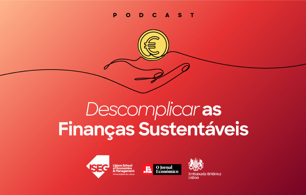The B Corp certification was created in 2006 by the American organisation B-Lab, and has spread to other parts of the world. In Portugal, there are more than 230 companies with this certification.
Many SMEs are looking for mechanisms to clearly and substantively communicate their sustainability practices. Since drawing up a sustainability strategy is the first step (as described in the previous article), it makes sense for SMEs to use this effort to also communicate their "level" of sustainability with their customers and business partners. It is therefore coherent and useful for SMEs to be able to define their sustainability strategy and respective action plan, with the ambition of being able to obtain international B Corp certification.
B Corp certification was created in 2006 by the American organisation B-Lab and has spread to other parts of the world. In Portugal, there are more than 230 companies with this certification. To obtain it, companies have to achieve more than 80 points in a classification created for the purpose, which aims to measure the company's impact on the society in which it operates.
These points are obtained by answering a questionnaire, demonstrating implemented processes and drawing up various documents and actions in five different areas: Governance, Employees, Community, Environment and Customers.
In terms of governance, the expectations will focus on the company's mission and its standards of ethics and transparency; in terms of employees, the requirements are associated with remuneration, health, well-being and safety; professional development, satisfaction; in terms of the community, the company is expected to report on its practices in terms of diversity, equity and inclusion, economic impact, civic involvement and donations, and the value chain; in terms of the environment, organisations will have to respond to their impacts related to environmental management, air and climate, water, land and life; finally, the model and practices implemented in terms of customer management must also be explained.
As we can see, many of these areas are associated with European sustainability reporting standards, which means that by opting for B Corp Certification, SMEs can also respond to the requirements that their clients, large companies, are beginning to demand under the European regulations that apply to them.
In order to obtain B Corp certification, an SME will have to carry out a lot of corporate management work, which will also respond to various requests from banks, co-financiers, clients and ratings, among others. Specifically, the work associated with certification allows companies to identify material issues, have a sustainability strategy, have an ethics policy, publish a sustainability report, have development plans for employees, a welcome and internal management manual, policies and practices to support the community, have environmental and social criteria when assessing their suppliers, calculate their carbon footprint and commit to neutrality, etc.
The whole process is carried out online, with some virtual meetings between the B Corp team and the company in the final phase. The process associated with certification takes an average of six to 12 months, depending on how long it takes to complete the questions and answers. Certification is reviewed every three years, guaranteeing continuous improvement of the company's process. Companies have to pay an annual fee to B Corp as soon as they are certified. This fee depends on turnover, but is on a reasonable and manageable scale for companies.
In short, a commitment to obtaining B Corp certification can be a useful path for SMEs, since it puts them on the radar of investors and consumers (there are more and more companies with this certification); it allows them to respond to a set of requirements that are increasingly being questioned by banks and rankings; and it provides an integrated and practical approach to what it means to have a sustainability strategy supported by ESG practices.
Article published in Jornal Económico.








